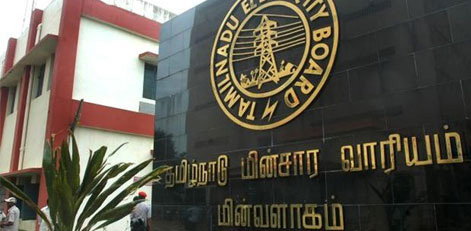80% of spouses not aware of the detailed assets and liabilities of their partners: Mudra Portfolio Managers
Posted on: 22/Dec/2020 2:03:00 PM

New Delhi, December 22, 2020: 80% of spouses are not aware of the detailed assets and liabilities of their partners, revealed the latest survey by Mudra Portfolio Managers, a global leading NRI and HNI financial service management company headquartered in Mumbai. The survey was conducted for around 900 High Networth Individuals (HNIs), Non-Resident Indians (NRIs) and Retail clients from India, Africa (Kenya, Nigeria), Singapore, Malaysia and Middle East (Dubai, Abu Dhabi, Kuwait).
With a sample size of 900 respondents (Indian HNI, NRI & Retail), this consolidation activity by Mudra Solutions revealed the following:
� 89% of respondents had never done a consolidation of their finances.
� 78% have no proper assets allocation.
� 71% don�t have health insurance except company provided one.
� 70% inclined towards repaying loans instead of maintain liquidity.
� 80% HNI and NRI spouses unaware of their partner�s Assets &Liabilities
� 79% underinsured while 35% don�t have a term plan.
� 65% save less than 20% of their salary & 80% of them spend 15-20% as miscellaneous expenses alone.
� Families unaware of the insurance cover of the earning member
Another startling fact from the report stated that 89% of respondents had never done a consolidation of their finances, while 73% of the respondents had not done a detailed income expense evaluation ever.
This survey was a part of Mudra�s Investor Awareness Program, where the company conducted a �Consolidation Activity� to help its associates get financially organized. The survey covered four important aspects covering a detailed analysis of income & expenses, financial risk assessment, assets & liabilities to analyze asset allocation & liquidity and lastly, ease of access and consolidation of finances. The activity was carried out for a period of 10 weeks.
�Lockdown and the associated uncertainties during Covid left people greatly concerned but on the other hand made them relook into their financial portfolios, something they had never cared for. The idea behind this consolidation activity was to make them aware of the criticality of doing a self-analysis of their finances, the importance of financial consolidation and the need of getting one�s family involved in financial matters,� said Nishant Kohli, Founder, Director and Business Head-Wealth, Mudra Portfolio Managers. �This activity was done to help them find answers to some unanswered questions like �are my savings enough�, �do I have a contingency plan!� or �are my expenses overboard� or even, �where my current investments are and what do I do with them!� etc.� he added.
Interestingly, 65% of the respondents were saving less than 20% of their salary and out of these, 80% of them had their miscellaneous expenses as much as 15%-20% of their salary, which could have been curbed and saved. This trend was higigher in people earning less than 50 lakhs p.a. The monthly Investment to Savings ratio in the earning group of 30 lakhs and below was found out to be 0.65 which for the earning group of 30 lakhs and above stood at only 0.38 as they prefer to keep more money in the accounts. This shows that the higher income groups usually do not optimally invest on a regular basis in comparison to lower income groups.
Under Financial Risk Assessment the survey also shows that 71% of the respondents have no health insurance except one provided by their company. Shockingly, the parents of as many as 88% of respondents did not have health insurance while the families of 80% of respondents were not aware about the details of their insurance cover.
In terms of life and term insurance, Mudra portfolio Managers found another alarming trend. A whopping 79% of the respondents were underinsured while 35% did not have a term plan, and 32% wrongly believed that they had their lives insured but their insurance cover was less than 30 lakhs. Families of as many as 75% of respondents were not aware about the details of the insurance cover.
An assessment of Assets and Liabilities under the program, revealed that 90% of the respondents had a contingency fund equal to 6 months of their salary. 70% of the respondents, who had purchased property in last 2-3 years, had overstretched themselves resulting in having less than 9 months of annual income as liquidity. Although loan ROIs have come down to the lowest, still 70% were more inclined towards repaying loans instead of maintain liquidity or making an investment. 78% of the respondents had no proper assets allocation. They were overweight in one type of asset.
Important things to remember while planning, managing and consolidating portfolio
� Quarterly Budgeting: Running an income- expense analysis every three months.
� Maintaining an optimal asset allocation and the right ratio of liquid and fixed assets.
� Having the correct information of the features, clauses, inclusions and exclusions in insurance e.g. life cover, tenure, premium paying term (PPT); cover exclusions and co-pay clauses (in health cover)
� Refraining from investing at multiple places e.g., having multiple bank accounts or several fixed deposits etc.
� Always having an online access to your bank accounts, investments, insurances, FDs etc.
� Maintaining a consolidation sheet and updating the sheet every quarter
When it came to the Consolidation of Finances, 89% of the respondents had never done their financial consolidation. 80% of the spouses were not aware about the detailed assets and liabilities including the account details, while a proper nomination was missing in 54% cases. Through this activity, 35% of the clients had forgotten about small chunks of investments done long back.
�I believe that knowing the problem is half as good as solving it. This program allowed d people to reflect on their existing financial standings and proved to be an eye-opener for most of them. We feel excited to have done this exercise as our clients really liked our initiative, especially the spouses as it ensured a productive communication with their partners towards sharing the financial responsibilities and maintaining healthy finances of their household,� added Nishant.
�Having one�s investments skewed towards one asset class is not a good sign for a healthy investment portfolio. Sometimes it is extremely critical to self-analyze one�s financial standing, especially for those whose jobs keep them too occupied. For instance, I never knew that I was highly underinsured until I undertook this assessment. This consolidation exercise has shown me key areas of improvement and has been quite helpful for me and my family and I would recommend this to everyone,� said Sameer Balakrishnan, Assistant Vice President at Mashreq Bank, Dubai who recently undertook the consolidation activity by Mudra Portfolio Managers.
The activity was carried out with a respondent mix of 40% HNIs, 35% NRIs and 25% retail with 60% of people with an annual earning of over INR 30 lakhs, 30% people of annual earnings between INR 10 and 30 lakhs and 10% with salary up-to INR 10 Lakhs.
�Everyone should do their financial consolidation as it is extremely beneficial. In these times it is very critical to ensure that we become more systematic and focused on our goals. At the same time, there arise various what-if scenarios for instance, what if I�m not there tomorrow, my family should know our financial worth as well as have a clear picture of the investments,� said Pankaj Agrawal, Managing Partner at Leela Fincare Group about the Consolidation Activity. �Such an exercise, though time consuming at first, becomes a ready reckoner of the areas we need to work upon to be financially sound. It�s worth it,� he added.
About Mudra Portfolio Managers:
Mudra Portfolio Managers is a leading financial service distribution company headquartered in Mumbai. Established in 2012, the company offers assistance to client in getting a comprehensive, financial solutions spread across various investment products and also provides assistance for taxation & tax filing services. These offerings are tailor-made to client needs and facilitate them in achieving their financial objectives. The services are primarily focused on high-net-worth individuals and NRIs.
For more information, visit: https://www.






